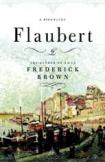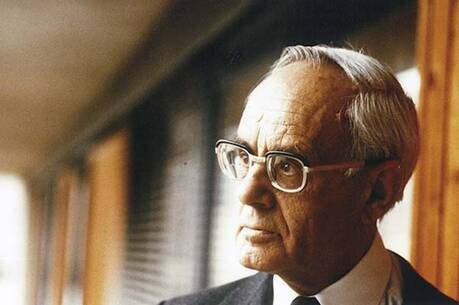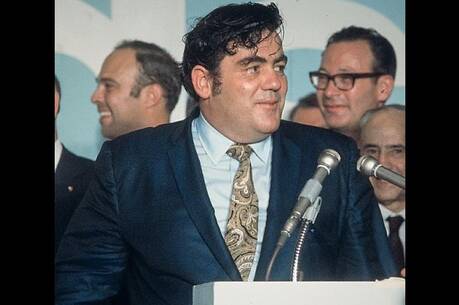Gustave: Singular, Suffering Genius
Everybody wants a piece of Flaubert. His contemporaries, Victor Hugo, Ivan Turgenev, Emile Zola, Guy de Maupassant and others hailed his genius. Twentieth-century critics, from Erich Auerbach to Lionel Trilling, ushered him into the pantheon of modernism. Jean-Paul Sartre ground out five massive volumes of an unfinished psycho-history about him; and by the 1960’s any halfway hip American collegian, like Lane Coutell in Franny and Zooey, might be writing a pretentious term paper on him. There are reliable biographies of Flaubert, most recently (2001) by Anthony Wall; but they are bound to play a secondary role, because they pale next to Flaubert’s own matchless correspondence and vivid travel notes.
So what was Frederick Brown, the capable biographer of Zola and Jean Cocteau, the chronicler of the French stage and the Père La Chaise cemetery, to do? Perhaps wisely, he has chosen to limit his literary analysis. Although he conscientiously summarizes all of Flaubert’s juvenalia (this also fills in the little we know about their teenage author), on the major works he mostly contents himself with brief comments. He sees Herodias, for example, as encapsulating the struggle between militant holiness and a ruthless eroticism, mirroring his own [Flaubert’s] conflict. Well, sort of. If read closely, the last of the Three Tales (1877) is a far more desperate affair, which reduces John the Baptist to a fanatical, if poetic, screamer; and, worse still, the eroticism turns out to be a blast of murderous sparks from the encounter between a ditzy-if-delicious nymphet (Salome) and her repulsive audience of slimy-lustful adults.
Still, more perceptive Flaubert criticism is readily available (see, among others, Harry Levin’s The Gates of Horn). What Brown does best is paint both the complex socio-political backdrop of Flaubert’s life and his endless medical woes. No one before him has done a better job of explaining the horrific toll taken by Flaubert’s epilepsy, from the first convenient attack that ended his legal studies through years of unpredictable misery. No one has traced more carefully Flaubert’s spasms of disgust at the wretched excuses for a government that the French repeatedly concocted, under Louis-Philippe, Louis Napoléon, Adolphe Thiers and Marshal MacMahon.
The picture that emerges is the familiar one of the godless saint, the man who sacrificed everything for art, which he venerated as the highest form of truth-telling.
Flaubert may have been an exuberant votary of harlots in his youth (he suffered chronically from syphilis, though he did not die of it, as did Maupassant and, before him, Flaubert’s adored friend Alfred Le Poittevin). And he had his share of love affairs. But, once past his 20’s, as the stunning six-foot blond Viking turned into a fat, balding, walrus-mustached bonhomme, Flaubert began to resemble spiritually the eremitical St. Anthony, whose temptations he loved to imagine.
As French literature’s most illustrious bourgeoisophobe, St. Gustave lashed the forever-rising middle class for its worship of Mammon, its selfishness, meanness, complacency, hypocrisy and inexhaustible stupidity. A genuine family man despite his abhorrence of marriage, Flaubert cherished the memory of his surgeon father, Achille-Cléophas. He was utterly devoted to his mother, Caroline, and her two namesakes, Flaubert’s short-lived sister and long-lived niecefor the latter’s sake he all but bankrupted himself in his declining years. He was doggedly loyal to a wide circle of friends, including his chère Maître, George Sand (and, by the way, how many other great 19th-century writers showed such respect for a female colleague?).
Brown does a fine job of portraying this fierce, irascible, wickedly ribald holy man through generous quotations from his letters (translated into brisk American prose, peppered with terms like personal space and goofy) and meticulous accounts of his travels through the Midi, Italy, the Levant (especially Egypt), North Africa and his native Normandy. This part of Flaubert’s lifethe intensely exotic stuff, like the Bee dance of Kuchiuk-Hanemcould not be more pleasurable to read. But it occupied far less of his time than the relentless, ascetical research on which he based all his narrativesfor example, the 400 books, many of them highly technical, he read about ancient Carthage before writing Salammbô, not to mention his strenuous, dangerous exploration of Carthaginian archaeological sites. For all his jests, few people have ever taken the métier of fiction with more sublime seriousness.
Perhaps inevitably, any one-volume life of Flaubert is bound to have lacunae. Given the tiny handful of contemporary depictions of his subject (Flaubert neurotically ducked both the camera and the easel), it is a pity Brown omitted the photo of Gustave, bearded and in Nubian costume, outside the Hôtel du Nil in Cairo. One wonders why he skipped Flaubert’s famous (rueful?) remark to Caroline Commanville, after dining with some altogether unassuming neighbors in a household full of children, Ils sont dans le vrai. One wishes he had rounded out his report on Flaubert’s salacious adventures with Kuchiuk-Hanem by citing the letter in which he acknowledges that she, like most Egyptian women, had been genitally mutilated as a child. And there are a dozen or so misquotations and other lapses that will, one hopes, be corrected in a second edition.
Still, this is a biography that not just Flaubertistes, but all lovers of French culture will have to buy. It is dense, informative and vigorously written. As the baldness of its title suggests, it aims to be all-inclusiveand it nearly succeeds in that. Though no one metaphor could ever capture the richness of Flaubert’s oeuvre, the idea of saintliness keeps recurringthe age-old belief that suffering, patiently (or, in this case, impatiently) endured, can be redemptivefor the artist, if not his characters. Just (re)read, for instance, A Simple Heart.
This article also appeared in print, under the headline “Gustave: Singular, Suffering Genius,” in the September 25, 2006, issue.








